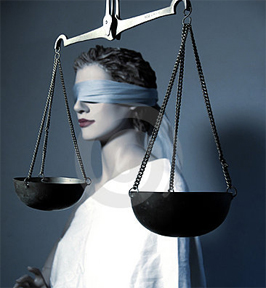This is just my personal take.
I think of the 6 as having two sides. One side is loyal, compliant, fearful, engaging, etc all the words you associate with stereotypical 6s. The other side is revolutionary, rebellious, cranky, mean-spirited, etc. things you might associate with cp 6s.
Most people have their ego ideals of being a certain way, and have certain repressed qualities that counter their ideals. For instance, 8s see themselves as strong and powerful, and are out of touch with their weakness and helplessness. People are often not even aware of their "shadow" side.
Sixes have both of these sides working together, however--no matter what they do, both sides are likely to play a role. Hence, they've got enormous self-doubts because their two halves are always at odds with themselves. To spare themselves much of this pain, they often direct some of that doubt outward, toward the environment and other people. The inner doubt still exists as well.
So, they are often taken with a sense of weakness or vulnerability to attack, simply because they see problems in the outer world while being a house divided against themselves, and that cannot stand. The world can't be trusted, they can't trust themselves. Even in heavily counterphobic 6s, there is still a tendency toward fear and submission, and at some level the 6 knows this and doubts that he won't crumble when push comes to shove.
So, they've got to be on guard against the world and prepare themselves to avoid crumbling. So, they tend to assume worst case scenarios in order to be the best prepared. Naturally, living in this mode 24/7 can be very stressful and tends to generate a sense of constant pressure.
This pressure is sometimes called existential anxiety--anything could go wrong at any time. Anyone could do anything! Better watch out and find a sure thing that won't go wonky on you. This sense is generalized, but it can vary 6-to-6. Some are more trusting of others to protect them from the things that go wrong, but have strong suspicions toward themselves and their own minds (particularly phobic 6w7s). Some are more trusting of themselves, but see threat in other people or in the environment (particularly cp 6w5s). For some, it's both, or not really one or the other.
Some 6s manifest this by literally feeling anxious, but for others it's more of a mental phenomenon--covering all bases, trying to logically cover areas where something bad might happen, staying prepared, warning others of potential dangers. They tend to hash and re-hash to this end. Some are even unaware of the anxiety because it's such a natural part of their lives and/or they've come to rely upon their own strength so much.
But, the core is that the 6 is his/her own worst enemy, and that's what makes them feel vulnerable to attack and generates their desire to eradicate all threats. Sixes have to learn to stop thinking and basically accept both halves of themselves (and others), in the manner of healthy 9s.
It's a complex type, and I hope I didn't just make that more confusing.


